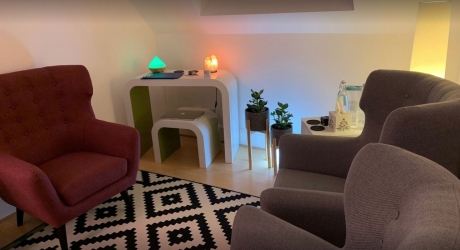Addiction Therapy
At Leone Centre, we offer you Addiction Therapy to help if you have become addicted to a substance or behaviour and you wish to change this.
Forms of addiction;
- Alcohol Addiction
- Codependency
- Drug Addiction
- Food Addiction and Eating Disorders
- Gambling Addiction
- Porn Addiction
- Sex Addiction
- Shopping Addiction
- Social Media Addiction
- Video Game Addiction
First Steps towards Addiction Recovery
Has your addiction become your strongest relationship taking centre stage in your life? Do you often feel overwhelmed, and your life becomes more chaotic?
The first step towards getting help is usually the hardest one. We know the complexities and challenges of addictions well and offer therapy and counselling to family, friends and in relationships to people struggling with addictions. Addiction takes many forms impacting in many different ways.
The effects of addiction and addictive tendencies can be devastating: some are obviously and visibly damaging, and some can be scarcely noticed.
Here at the Leone Centre, our experienced therapists are to provide Addiction Therapy support wherever and whenever you need it most. We understand how lonely it can be to struggle with an addiction and how difficult it can be to seek help, support or advice.
Addictions are often connected with anxiety and maladaptive ways of managing stress, trauma, depression, low confidence, and self-esteem. Addictions often negatively impact relationships, marriages, careers, and physical health.
Whatever the type of addiction you may have – whether it be social media, drugs, alcohol, sex, gambling, etc. – our centre’s therapists are highly trained by the relevant governing bodies to deal with a wide variety of issues, utilising their substantial expertise to help nurture you through your recovery.
What does Addiction Therapy involve?
Addiction Therapy describes a wide range of interventions that treat substance use disorder or address a repeated pattern of abuse. In other words, it seeks to help you deal with your cravings and triggers without the threat of relapsing or worsening any uncontrollable addictive behaviour later on down the line.
Our therapists will work with you one-to-one to determine the most effective way to treat your precise addiction, needs and circumstances. We also understand how sensitive an issue it can be to discuss your addiction, which is why we make every effort to ensure our centres are as safe and nurturing an environment as they can be.

Addictions come in many forms
Some addictions are clarified below, though your relationship with a certain behaviour or substance is important. If you are worried or unsure, speak to a professional.
- Codependency – Co-dependency is an unhealthy relationship pattern with dynamics strongly related to addictions. Co-dependency defines psychological dysfunction, which can significantly impact mental and emotional well-being.
- Food/Eating Disorders – Eating Disorders and disordered eating are common and not always thought of as an addiction but share symptoms of addiction.
- Alcohol Addiction – alcohol addiction can be particularly difficult to admit, stop and make lasting changes, as it is socially acceptable. Though with the right support, it is certainly doable.
- Drug Addiction – Whether prescription, over-the-counter, recreational drugs or ‘hard’ drugs, addiction to a substance has devastating impacts.
- Sex Addiction – Porn and/or sex addiction takes true pleasure from sex. We can help you make sustainable changes to find fulfilment in sexual relationships.
- Video Game Addiction – Though most people can enjoy the joys of gaming, for some, it becomes a relationship which starts to become destructive, making it difficult to be present in other aspects of your life.
- Gambling Addiction – It might be difficult to admit you have a problem, particularly if you are not in a financially problematic position – this is common; gambling addiction has detrimental impacts.
- Social Media Addiction – If social media use becomes excessive and problematic, it can impact our well-being.

Get Started Today
with Leone Centre

BOOK NOW

Call us
020 3930 1007

View our therapists
Find your match

